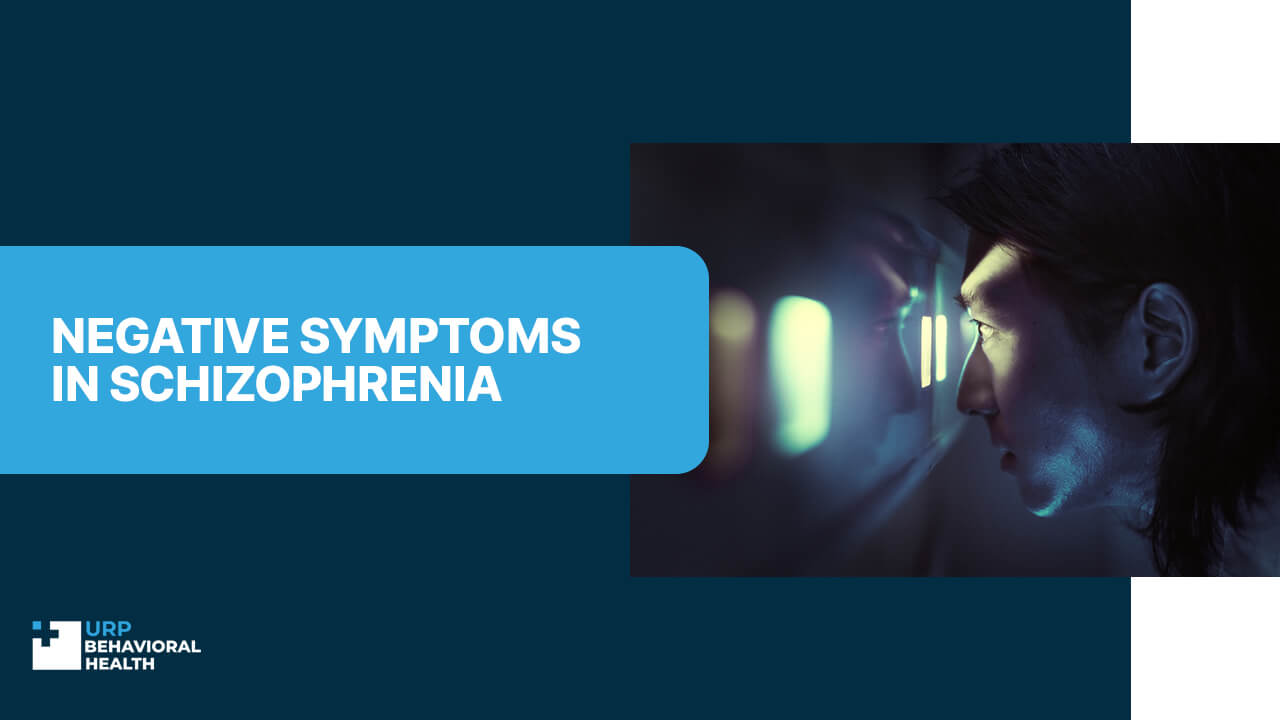
Negative Symptoms in Schizophrenia
A multifaceted mental disorder, schizophrenia presents with a wide range of symptoms, significantly affecting the lives of those diagnosed. Among these symptoms, negative symptoms are particularly debilitating, contributing to functional impairments and reduced quality of life. Negative symptoms include deficits in normal emotional and behavioral functioning, such as apathy, social withdrawal, and reduced speech. Understanding these symptoms is essential for developing effective treatment strategies and improving patient outcomes.
What are Negative Symptoms in Schizophrenia?
Negative symptoms of schizophrenia refer to the absence or diminishment of normal behaviors and functions. These symptoms stand in contrast to positive symptoms, which are characterized by the presence of abnormal behaviors, such as hallucinations and delusions. Negative manifestation of schizophrenia can significantly impair an individual’s ability to function in daily life and often contribute to long-term disability. They are associated with poorer prognosis and can be more challenging to treat than positive symptoms [1][2][3][4].
Causes of Negative Symptoms
The exact causes of negative symptoms in schizophrenia are not fully understood, but they are believed to result from a combination of genetic, neurobiological, and environmental factors. Structural and functional abnormalities in the brain, particularly in areas involved in motivation, emotion, and social behavior, are thought to play a key role. Additionally, factors such as chronic stress, social isolation, and substance abuse can exacerbate negative symptoms. Understanding these underlying causes is critical for developing targeted treatments and interventions [2].
Don’t wait - confidential help is available right now for you or your loved one.
Negative Signs and Symptoms of Schizophrenia
Apathy
Apathy, or lack of motivation, is a common negative symptom of schizophrenia. Individuals with apathy may show little interest in activities or goals that were once important to them. This can lead to difficulties in maintaining employment, education, and personal relationships. Apathy can be particularly challenging to address, as it impacts the individual’s drive to participate in therapeutic activities and daily routines [3].
Absent, Blunted, or Incongruous Emotional Responses
Individuals with schizophrenia often exhibit flattened or blunted affect, meaning they show reduced emotional expression. This can include limited facial expressions, monotone speech, and diminished gestures. In some cases, emotional responses may be incongruous or inappropriate to the situation, further complicating social interactions and relationships. These emotional deficits are a significant aspect of the negative symptoms of schizophrenia and contribute to social isolation and misunderstanding [1].
Reductions in Speech
Reductions in speech, also known as alogia, are another common negative symptom. Individuals may speak less frequently and with less content, often providing short, unelaborated responses. This can make communication challenging and can be mistaken for disinterest or uncooperativeness. Alogia is often linked to broader cognitive impairments in schizophrenia, affecting the individual’s ability to process and articulate thoughts effectively [2].
Social Withdrawal
Social withdrawal is a hallmark negative symptom of schizophrenia. Individuals may isolate themselves from family, friends, and social activities, leading to increased loneliness and further exacerbation of symptoms. This withdrawal can result from a combination of apathy, anhedonia, and paranoia, creating a cycle that is difficult to break. Addressing social withdrawal requires a multifaceted approach, including psychosocial interventions and support [3].
Impaired Attention
Impaired attention is another negative symptom that can significantly impact daily functioning. Individuals with schizophrenia may have difficulty concentrating on tasks, following conversations, or completing activities that require sustained mental effort. This impairment can affect academic and occupational performance, further contributing to the individual’s overall functional decline [4].
Anhedonia
Anhedonia, or the inability to experience pleasure, is a profound negative symptom. Individuals with anhedonia may not find joy in activities they once enjoyed, leading to a decreased quality of life. This symptom can affect all areas of life, including hobbies, social interactions, and personal relationships. Anhedonia is closely linked to other negative symptoms and can be particularly resistant to treatment. The 5 A’s of negative symptoms of schizophrenia include anhedonia, avolition, alogia, affective flattening, and attentional impairment, all of which significantly impact the individual’s functioning and quality of life [1].
Sexual Problems
Sexual problems, including decreased libido and difficulties with sexual functioning, are common in individuals with schizophrenia. These issues can result from a combination of negative symptoms, such as anhedonia and apathy, as well as side effects of medication and overall health status. Addressing sexual problems in schizophrenia requires a holistic approach that considers both psychological and physiological factors [2].
Lethargy
Lethargy, or a lack of energy, is another negative symptom that affects individuals with schizophrenia. This can manifest as physical fatigue, mental exhaustion, or a general sense of sluggishness. Lethargy can significantly impair the individual’s ability to engage in daily activities and contribute to overall functional decline. Strategies to manage lethargy often include lifestyle modifications, such as exercise and nutrition, as well as therapeutic interventions to improve overall energy levels [3].
Reach out today and let us create a treatment plan designed around your needs.
Primary and Secondary Negative Symptoms
Negative symptoms in schizophrenia can be categorized as primary or secondary. Primary negative symptoms are intrinsic to the disorder and are directly related to the neurobiological underpinnings of schizophrenia. Secondary negative symptoms, on the other hand, result from external factors such as medication side effects, social isolation, or depression. Differentiating between primary and secondary negative symptoms is important for developing effective treatment plans. Understanding this distinction helps clinicians target the root causes of the symptoms and tailor interventions accordingly [4].
Negative Mental Symptoms
Negative mental symptoms of schizophrenia include cognitive deficits, such as impaired attention, memory, and executive functioning. These symptoms can significantly impact daily living and are often resistant to treatment. Cognitive remediation therapies are often employed to help improve these mental deficits and enhance overall functioning. Addressing cognitive symptoms is crucial for improving the individual’s quality of life and ability to function independently [1].
Negative Physical Symptoms
Negative physical symptoms of schizophrenia can include motor retardation, lethargy, and overall physical decline. These symptoms are often less recognized but can have a profound impact on the individual’s ability to engage in physical activities and maintain overall health. Physical therapy, exercise programs, and nutritional support can be beneficial in addressing these physical symptoms and improving overall well-being [2].
Is Catatonia a Negative Symptom of Schizophrenia?
Catatonia can be a feature of schizophrenia, and it may present as a negative symptom. It involves a range of motor abnormalities, from extreme agitation to complete immobility. Catatonia can significantly impair functioning and requires careful assessment and intervention. Treatment often involves a combination of medical and therapeutic approaches to address both the motor symptoms and the underlying psychological issues [3].
Is Flat Affect a Negative Symptom of Schizophrenia?
Flat affect, characterized by a severe reduction in emotional expressiveness, is a prominent negative symptom of schizophrenia. Individuals with flat affect may appear emotionally unresponsive and show little to no facial expressions, gestures, or vocal inflections. This can make social interactions challenging and can be misinterpreted as disinterest or uncooperativeness. Flat affect is often resistant to treatment and can significantly impact the individual’s ability to form and maintain relationships [4].
Diagnosing Negative Symptoms
Diagnosing negative symptoms in schizophrenia involves a comprehensive assessment by a mental health professional. This includes detailed medical history, clinical interviews, and standardized assessment tools designed to evaluate the presence and severity of negative symptoms. Early and accurate diagnosis is crucial for developing effective treatment plans and improving patient outcomes. Differentiating negative symptoms from other psychiatric or medical conditions is essential for providing appropriate care [1][2][3][4].
Treatment for Negative Symptoms
Effective treatment for negative symptoms of schizophrenia typically involves a combination of psychosocial interventions, support, and medication management. It is essential to consult with a healthcare professional or visit a clinic for a comprehensive treatment plan. Therapy can help individuals develop coping strategies, enhance motivation, and improve social skills, while support groups provide a community of understanding and encouragement. Early intervention and continuous care are vital for managing negative symptoms and improving overall outcomes for individuals with schizophrenia. In addition to professional care, lifestyle modifications, such as maintaining a healthy diet, regular exercise, and adequate sleep, can also play a significant role in managing symptoms and improving quality of life. Consistent follow-up care and support from healthcare providers are crucial to ensure long-term management of the disorder. The treatment of negative symptoms of schizophrenia requires a multifaceted approach that addresses both the psychological and physical aspects of the disorder [2].
Our team will verify your insurance and design a plan tailored to your needs.
Conclusion
Grasping the negative symptoms of schizophrenia is critical for offering effective support and treatment. Symptoms such as apathy, social withdrawal, and reduced speech can significantly affect an individual’s life and contribute to long-term disability. Acknowledging these symptoms and understanding their impact is essential for creating comprehensive treatment plans that cater to the needs of individuals with schizophrenia.If you or someone you know is experiencing symptoms of schizophrenia, seeking professional help is crucial for managing the disorder and improving quality of life. Comprehensive care, including therapy and support, can make a significant difference in the lives of individuals with schizophrenia. Encouraging early intervention and continuous support can lead to better outcomes and help individuals lead fulfilling lives despite the challenges posed by schizophrenia. Awareness and education about schizophrenia and its negative symptoms can also reduce stigma and promote understanding within the community, leading to a more supportive environment for those affected by the disorder. The negative effects of schizophrenia can be mitigated through appropriate treatment, support, and lifestyle changes, ultimately improving the individual’s overall quality of life [1][2][3][4].
Sources
- [1] “Understanding schizophrenia: symptoms and diagnosis”. https://pubmed.ncbi.nlm.nih.gov/7879644/
- [2] “Negative symptoms of schizophrenia: clinical and research perspectives”. https://pubmed.ncbi.nlm.nih.gov/35046851/
- [3] “Assessment and treatment of negative symptoms in schizophrenia”. https://pubmed.ncbi.nlm.nih.gov/32110026/
- [4] “The role of negative symptoms in schizophrenia outcomes”. https://pubmed.ncbi.nlm.nih.gov/28776162/
















